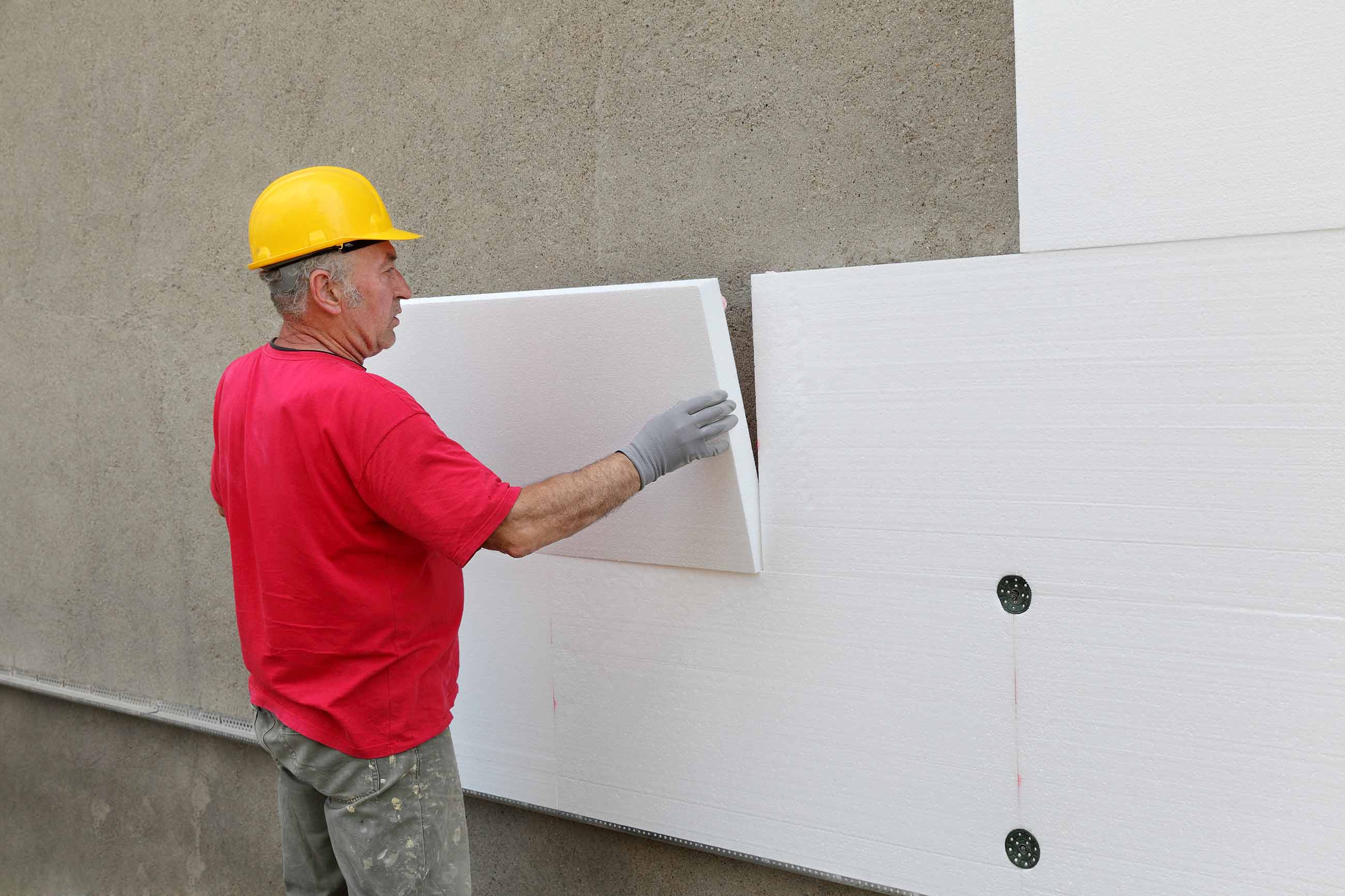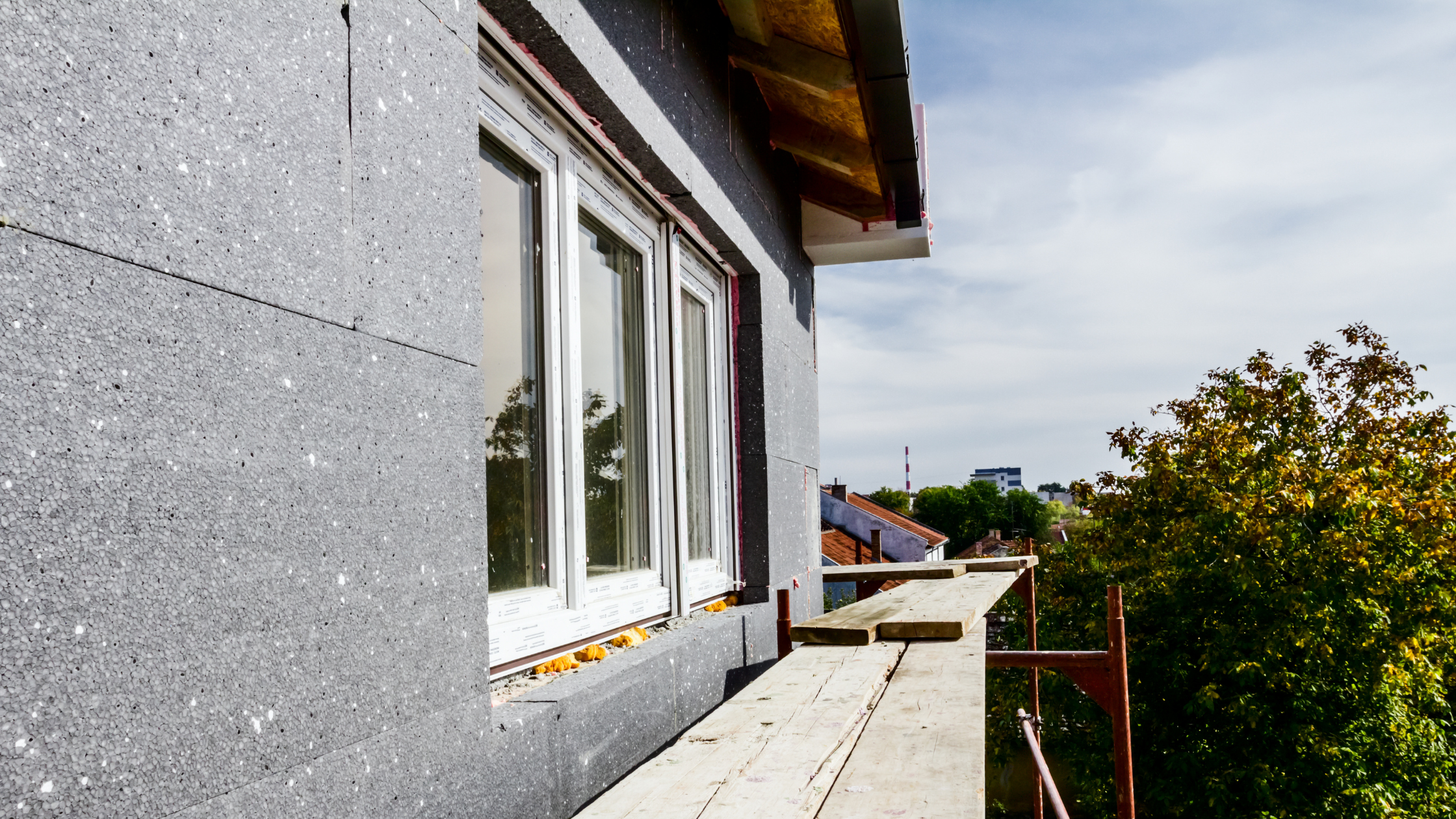


Non-binding inquiry
Did you not find what you were looking for?
No worries, you can send an individual request
Facade insulation
Facade insulation is one of the most important measures in an energy-efficient renovation. Together with the replacement of old windows or window renovation and roof insulation, the most energy can be saved with energy-efficient facade renovation: Up to 40% of the heating heat can be lost through the outside walls in an uninsulated old building. In older houses it is therefore crucial to insulate the facade. Renewing a facade with additional thermal insulation reduces heat loss by up to 75%!
Renovate the facade to make it more energy efficient
You should definitely renovate the facade in terms of energy efficiency if the outer shell needs to be renewed anyway. But it is also worthwhile to insulate the facade according to the current state of the art - especially if a building is in energy class E or worse according to GEAK. This requires an insulation layer of 15 to 25 cm. This is usually attached directly to the masonry and the new facade is then mounted on top of it. With an energy-efficient facade renovation, the architecture of a house can be retained - or it can be clearly and visibly changed. Just as desired. When it comes to energy-efficient renovation of the facade, you can choose from two types of facade:
1. Compact facade
The compact facade - also called plastered external thermal insulation - is the most common in this country. The facade insulation is mounted directly onto the masonry in the form of insulation mats. The plaster is applied to this thermal insulation. The facade plaster protects against weather and mechanical stress, and it has a significant impact on the appearance of a house: it is available smooth and fine, with or without structure, and all imaginable color variations are also possible. A painting store can give you good advice here. Since the facade of an uninsulated old building usually consists of plaster applied directly to the masonry, the compact facade is the best way to preserve the architecture. Compact facades are more cost-effective than ventilated facades, but generally require more maintenance and are less mechanically resistant.
2. Ventilated facade
A ventilated facade significantly changes the architecture of a house. This type of facade consists of facade insulation (insulation panels) on which a supporting structure is mounted. The supporting structure holds the facade cladding, which is made from materials such as wood, fiber cement, stone, ceramic or metal. The facade cladding has no contact with the facade insulation: the supporting structure ensures a distance between the insulation material and the facade cladding. Air circulates through this rear ventilation space, which continuously removes moisture from the masonry or the house. Ventilated facades are more expensive than compact facades, but usually have a longer lifespan. They are also more robust and remove moisture from the masonry particularly efficiently.
Facade insulation: the materials
Facade insulation consists of a material that conducts heat very poorly. The reason for the poor thermal conductivity is the air trapped in the insulation material. Therefore, materials for facade insulation are usually fleece-like or foamed materials that contain countless small air pockets. Most often, house facades are insulated with mineral wool (stone or glass wool) or expanded polystyrene (EPS, Styrofoam). Mineral wool has the advantage that it is non-flammable and even has a fire-retardant effect. It is dimensionally stable and extremely durable. Expanded polystyrene has the advantage that it is very light and can be easily assembled - even glued on. An energetic facade renovation is usually cheaper than one with mineral wool - however, polystyrene is sensitive to heat and can shrink over time.
Funding for facade renovation
The federal government and cantons promote energy-efficient facade renovation with the building program, and there are also regional funding programs that also take facade renovation into account. There is usually a fixed amount per square meter of thermal insulation. GEAK experts know where and which funding comes into question. And what's important is that you have to apply for funding before construction work begins.
Do not hesitate and let us know
We are there for you. Feel free to contact us directly by E-Mail with your questions or concerns. We will try to reply immediately. We are available from: Monday to Friday 08:00 – 18:00

What our clients say
The feedback from our clients speaks for itself.





